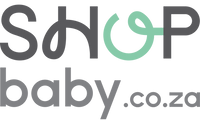By Burgie Ireland RN RM SANC
March 11th is National Kidney day. These organs are vital for your baby’s overall health. Their purpose is to remove waste, maintain your baby’s body fluid balance, and keep the blood slightly alkaline.
A baby’s kidneys start developing during the fifth week of pregnancy and they’re able to produce urine by 13 weeks. After birth, babies should pass urine within the first 24 hours.
As soon as the baby starts feeding, the kidneys have to adjust to major changes in the diet. Colostrum, baby’s first milk, and mature breast milk, are perfectly balanced and easily digested. When circumstances are such that breastfeeding is not possible, supplement feeds using formula, mostly made from cow’s milk, is unavoidable.
Because cow’s milk is made for calves, it has to be formulated for babies – especially those younger than one year. Formula must be mixed according to instructions – these are printed on the tin. Tightly packing scoops or using more formula than stipulated can put extra strain on the kidneys. This is called solute overload and happens when minerals like sodium, potassium, chloride and phosphorus become too concentrated in the blood. To overcome this imbalance, the kidneys have to excrete extra water, causing hypernatraemic dehydration.
It is equally as dangerous to use too few scoopfuls. Diluted formula can make babies undernourished and they will soon start losing weight and become sickly.
Formula tips:
- Your clinic sister/midwife/lactation consultant/doctor should advise you which formula to use. NEVER use an unknown brand, powdered, condensed, evaporated milk or coffee creamer
- Mistakes can be made if you are distracted when adding formula to the water. Measure the necessary amount exactly to avoid doing this. Use a knife to smooth the top of the measuring scoop.
- Discard unused formula. Never reuse unfinished bottles
- To prevent overheating the milk, babies can drink formula at room temperature. Microwave heating is not recommended.

